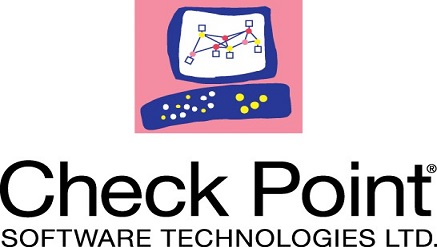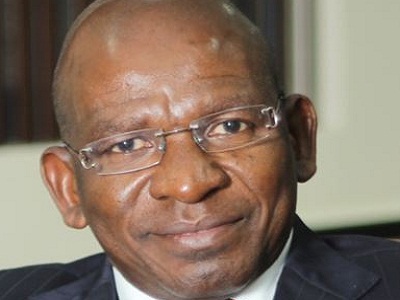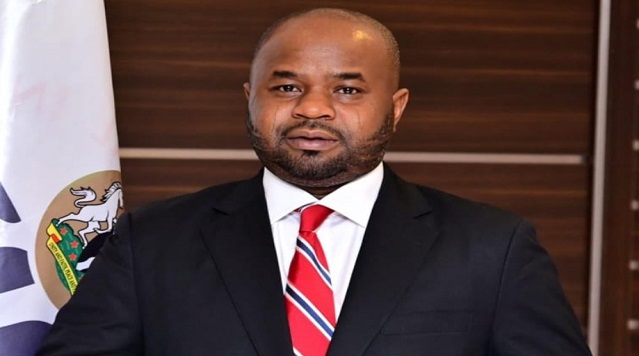News
Securing the Healthcare Industry: Prevention is Better Than Cure

The healthcare industry, arguably one of the most technologically advanced considering the gadgets and devices now used to monitor health statistics and perform medical procedures, is ironically among the most ‘unhealthy’ when it comes to network security.
Delegates attending the recent Healthcare Innovation Summit were told that medical records are being increasingly targeted by cybercriminals – data from the US showed that 89% of healthcare institutions suffered a security breach and were twice more likely to be targeted than other organisations.
Healthcare record theft increased a shocking 1100% this year with more than 100 million records compromised worldwide. The biggest threat, says KPMG, comes from external attackers – at 65% – while malware tops the list of information security concerns.
But why is an industry with the technological ability to perform surgery on patients in other countries so sick when it comes to protecting information?
The answer is multi-faceted:
Valuable data: Data collected and stored by hospitals and other organisations, such as medical aid schemes, is up to ten times more valuable to cybercriminals than credit card information.
This is due to the sheer volume of information gathered about individuals – and the fact that we’re seeing an increased shift to digital medical records – which makes it easy to commit fraud and identity theft.
Given the value of this data on the black market, cyber-attacks are becoming ever more sophisticated in their attempts to hack healthcare institutions.
Ageing infrastructure: Hospitals are melting pots of outdated infrastructure, old operating systems and state-of-the-art medical technology, all communicating over the same networks.
Often, hospitals take an ‘if it’s not broken, don’t fix it’ approach to technology, so devices may not be patched with the latest software versions, for example.
The problem, however, is that the system is very much broken. KPMG found that, in terms of technical capabilities, the healthcare industry is behind other industries when it comes to protecting infrastructure and information.
Complex networks: The fact that so many different people, devices and departments need to access a medical institution’s records forces them to adopt open networks.
Add to this the increasing number of Internet of Things and the myriad Internet-connected gadgets connecting to the network and it becomes difficult to secure and even more vulnerable to attack.
No budget: Security spending in the healthcare industry is at times as little as one-tenth of what other industries spend. When it comes to technology spending, a new MRI machine will likely win the budget lottery over security software.
Easy targets: Ransomware is one of the biggest methods used by cybercriminals to gain access to medical data.
This involves ‘kidnapping’ the data and only releasing it once the hospital pays a ransom. Because medical organisations are generally dealing with crises, they need urgent access to their data and are more willing to pay the ransom to get back up and running as quickly as possible. Cybercriminals know this and are exploiting it.
Lack of understanding and awareness: Although medical institutions are becoming more technologically centric, that’s not to say they’re focusing on technology and there’s a lack of understanding of what’s going on when it comes to cyber security.
There needs to be an increased understanding of how to defend against attacks like ransomware, coupled with a bigger focus on educating staff and users on how to spot phishing attacks – people are, after all, the weakest link in the security chain.
Prevention Is Better Than Cure
It sounds clichéd but, when it comes to security in any sector, prevention certainly is better than cure.
In order to gain a holistic overview of the network, technology managers need to design the infrastructure from the bottom up, starting with the physical layer, comprising devices and other hardware, and working up to the application layer.
This multi-layered approach to security gives IT managers more visibility into the network so that they can see what data is coming into and leaving the network and can implement controls as required.
For example, sensitive patient information can be encrypted as it traverses the network between devices, while less sensitive information, such as that collected by fitness devices, can be subject to less stringent protection measures.
Education of staff members is also critical. They need to be able to identify hacks such as spear phishing and ransomware attempts so that they know not to click on malicious links and to alert the IT department to such attempts.
There also needs to be a general increase in awareness within the healthcare sector of the various methods used by cybercriminals to gain access to medical data. In many cases, medical institutions do not even know that they’ve been infiltrated purely because they don’t know the warning signs. They need to take a more proactive approach to network security and understand how to prevent certain attacks.
Security should not be reactive and should not be done just because organisations want to comply with legislation such as the Protection of Personal Information (POPI) Act.
But unfortunately, this is the case in the healthcare industry and it’s the reason why they are always one step behind the attackers. Rather, security should be about prevention and the desire to ensure the integrity of sensitive information.
Rick Rogers, Area Manager for East and West Africa at Check Point Software Technologies
News
Trump Says He Made no Mistake Sharing Video Depicting Obamas as Apes

United States President Donald Trump has said he made no mistake for a video briefly shared on his official Truth Social account that depicted former President Barack Obama and former First Lady Michelle Obama as apes.

Former President Barack Obama
Speaking late Friday to reporters accompanying him aboard Air Force One, Trump insisted he made no mistake by sharing the video and does not need to apologise.
“I didn’t make a mistake,” he said.
Trump explained that he did not watch the entire clip before it was posted.
“I didn’t see the whole thing. I looked at the first part, and it was really about voter fraud in the machines, how crooked it is, how disgusting it is.
“Then I gave it to the people. Generally, they look at the whole thing. But I guess somebody didn’t,” he said.
When asked directly whether he condemned the video’s content, Trump replied, “Of course I do.”
The video, which was posted late Thursday, pushed a conspiracy theory about voting machines used during the 2020 election and included a racist depiction of the Obamas.
It remained on Trump’s Truth Social account for about 12 hours before being deleted on Friday morning, following widespread bipartisan calls for its removal.
The White House initially defended the post in an emailed statement to reporters on Friday morning by Karoline Leavitt, Press Secretary,.
She said, “This is from an internet meme video depicting President Trump as the King of the Jungle and Democrats as characters from The Lion King.”
Leavitt added, “Please stop the fake outrage and report on something today that actually matters to the American public.”
Hours after the statement was issued, the video was removed from Trump’s official Truth Social account.
News
Orya, Ex-NEXIM MD Jailed 490 Years for N2.4Bn Fraud

Robert Orya, former managing director, Nigerian Export-Import Bank, (NEXIM), has been sentenced to a cumulative 490 years’ imprisonment over a N2.4 billion fraud, following his conviction by a Federal Capital Territory (FCT) High Court in Abuja.

The conviction was secured by the Economic and Financial Crimes Commission (EFCC). Justice F. E. Messiri sentenced Orya to 10 years’ imprisonment on each of the 49 counts brought against him, with the sentences running cumulatively.
Orya, who headed NEXIM Bank between 2011 and 2016, was prosecuted by Samuel Ugwuegbulam, EFCC counsel.
The anti-graft agency accused him of fraudulently diverting funds belonging to the bank—charges the court held were proven beyond reasonable doubt.
Delivering judgment, Justice Messiri ruled that the prosecution successfully established its case, finding the former bank chief guilty on all 49 counts of fraud.
The conviction has been widely linked to the renewed momentum within the EFCC under Mr. Ola Olukoyede, its Chairman, whose leadership has seen a reinvigoration of the agency’s resolve to pursue high-profile corruption cases to their logical conclusion.
Since assuming office, Olukoyede has repeatedly vowed that no individual, regardless of status or past influence, would be shielded from accountability.
Under his stewardship, the EFCC has intensified the prosecution of complex financial crimes, particularly cases involving public institutions and large-scale diversion of funds.
Observers say the sentencing of a former chief executive of a government-owned bank underscores the EFCC’s determination to restore public confidence in the anti-corruption fight and sends a strong signal that financial misconduct will attract severe consequences.
The judgment is regarded as one of the most significant convictions secured against a former banking chief in recent years, reinforcing the agency’s resolve to clamp down on economic crimes within Nigeria’s financial sector.
During his tenure at NEXIM Bank, Orya was initially credited with efforts to reposition the institution to support non-oil exports and improve its financial standing after earlier setbacks.
However, his administration later became enmeshed in controversies, including allegations of loan disbursement irregularities and procedural abuses.
The case, which culminated in Thursday’s judgment, centred on findings that Orya diverted public funds estimated at N2.4 billion—offences that ultimately led to his conviction and lengthy prison sentence.
News
NRS Chairman Outlines Ways Nigeria can Move from Potential to Economic Prosperity

Zacch Adedeji, chairman of the Nigeria Revenue Service (NRS) has called for a paradigm shift in dependence on raw material exports to one that embrace ideas, innovation and the production of complex products as a pathway to sustainable economic growth and national prosperity.

Adedeji made the submission while delivering the maiden distinguished personality lecture of the Faculty of Administration, Obafemi Awolowo University (OAU), Ile-Ife, Osun State, on Thursday.
A statement by his Special Adviser on Media, Dare Adekanmbi, said Adedeji, in the lecture entitled, ‘From Potential to Prosperity: Export-led Economy’, stressed the need to rethink growth through the lens of complexity by not just producing more of the same stuff.
He lamented that Nigeria possesses a high-tech oil sector and low-productivity informal sector as well as lacking “the vibrant, labour-absorbing industrial base that serves as a bridge to higher complexity.”
The NRS boss stated that Nigeria witnessed stagnation in its exportation drive for three decades between 1998 to 2023, and only added six new products in its export basket list between 2008 and 2023.
“Because of our current position, the Harvard Atlas concluded that we are positioned to take advantage of very few opportunities to diversify using what we already know.”
Adedeji urged Nigeria to learn from the world by comparative study of success and failure like Vietnam, Bangladesh, Indonesia, South Africa and Brazil.
“We are not just looking at numbers in a vacuum; we are looking at the strategic choices made by nations like Vietnam, Indonesia, Bangladesh, Brazil, and South Africa over the same twenty-five-year period. While there are many ways to under perform, the path to success is remarkably consistent: it is defined by a clear strategy to build economic complexity.
“When we put these stories together, the divergence is clear. Vietnam used global trade to build a resilient, complex economy, while the others remained dependent on natural resources or a single low-tech niche.
“There are three big lessons here for us in Nigeria as we think about our roadmap. First, avoiding the resource curse is necessary, but it is not enough. You need a proactive strategy to build productive capabilities.
“Vietnam’s success came from integrating itself into Global Value Chains (GVCs). They positioned themselves as the assembly hub for the world’s electronics, importing high-tech parts and exporting finished products.
“This allowed them to “borrow” technology and management skills from abroad to build their own know-how.
“Nigeria, on the other hand, remains a supplier of raw materials to these chains, not an active participant within them. We must realise that productive capabilities are not permanent. The examples of South Africa and Brazil show us that you can actually lose your industrial edge if you are not careful. Over-reliance on the easy path of resource extraction creates economic and political incentives that crowd out the difficult, long-term work of building an industrial base.”
He added that for Nigeria, which is at an even earlier stage of development and even less diversified than these nations, the warning is stark.
“Relying solely on our natural endowments isn’t just a path to stagnation; it’s a path to regression. The global economy increasingly rewards knowledge and complexity, not just what you can dig out of the ground. If we want to move from potential to prosperity, we must stop being just a source of raw materials and start being a source of ideas, innovation, and complex products.
He added that President Bola Tinubu has already begun the difficult work of rebuilding the economy to ensure collective knowledge to innovate, produce and build a resilient economy.
“The journey from potential to prosperity is not a short one, but with the right map and the right resolve, it is a journey we can finally complete,’ he added.

 General News2 days ago
General News2 days agoGlobacom Donates ₦1Bn to Lagos State Security Trust Fund

 Telecom3 days ago
Telecom3 days agoMTN Guns for $2.76bn IHS Towers Buyout in African Telecom Power Grab

 E-Financial3 days ago
E-Financial3 days agoIncentives alone won’t win over Africa’s next billion fintech users — Kuda MFB MD

 Telecom2 days ago
Telecom2 days agoAirtel Nigeria Commits to Upgrade of its Network Infrastructure for Improved Quality of Service

 Telecom3 days ago
Telecom3 days agoGoogle Calls on Africa’s AI Trailblazers for 10th Startup Accelerator Cohort

 E-Business3 days ago
E-Business3 days agoFirm Reviews the Evolution of Phishing Threats in 2025

 E-Business2 days ago
E-Business2 days agoPwC Reveals AI Scaling Gap Slows Africa’s Digital Transformation

 General News3 days ago
General News3 days agoEdTech Platform Unveils over 5,000 Self-Paced Courses for Skills, Knowledge, and Literacy













